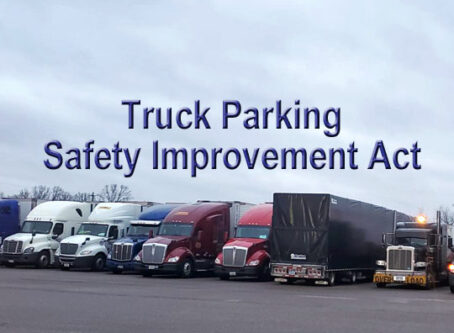Idaho Supreme Court defines ‘CDL holder’ in lifetime ban case
The Idaho Supreme Court affirmed a lower court’s decision to install a lifetime CDL ban. The driver was arrested on three separate occasions for suspicion of driving under the influence, resulting in DUI convictions in the latter two cases. The high court determined what it means to be a “CDL holder” within both state and federal regulations.
On Sept. 9, the Idaho Supreme Court agreed with the Idaho Department of Transportation to strip Bruce Allen Edwards of his CDL for life after three DUI arrests. Edwards argued that after his CDL was suspended on the first DUI charge, the other two should not count towards disqualifications since he technically did not hold a CDL.
The case comes down to the interpretation of the language within 49 CFR §383.51, which explains driver disqualifications.
Edwards v. Idaho DOT
According to court documents, Edwards received his Class A CDL in March 2011. In April 2012, Edward was arrested in Boundary County, Idaho, for driving under the influence of alcohol. His breath alcohol content registered 0.085 and 0.082.
Although that first arrest did not lead to a DUI conviction, Edwards did have his license suspended for 90 days. Consequently, his CDL privileges were revoked for one year from May 2012 to May 2013.
In January 2013, Edwards was arrested for a second DUI in Kootenai County, Idaho, with a BAC of 0.125. He pleaded guilty a month later. This time, Edwards’ noncommercial license would be suspended for one year. His CDL privileges would be revoked for life, effective March 2013.
According to 49 CFR §383.51, “for a second conviction or refusal to be tested in a separate incident of (a DUI) while operating a non-CMV, a CLP or CDL holder must be disqualified from operating a CMV for life.”
A CDL can be reinstated 10 years after a lifetime ban was handed down under certain conditions.
Both suspensions were vacated by the district court. Edwards had requested a hearing, which occurred in March 2013. Edwards successfully appealed this administrative license suspension and CDL disqualification. Both were vacated by the district court in March 2015.
However, while Edwards was litigating the suspensions, he was arrested for a third DUI in June 2013. This time around, Edwards refused to be tested. This third arrest led to Edwards’ conviction of driving under the influence in Bonner County in December 2013.
Approximately a year and a half later, the transportation department notified Edwards that it intended to impose a mandatory lifetime disqualification of his CDL that was to take effect in August 2015. Referring to the first DUI arrest in 2012, the department cited three other potential second offenses that warranted a lifetime ban: his DUI conviction in February 2013 resulting from the January 2013 arrest; a “refusal conviction” in July 2013, and his DUI conviction in December 2013 – both stemming from the June 2013 arrest.
The lifetime ban was sustained by the transportation department in September 2015 and affirmed by a district court.
Was Edwards a CDL “holder?”
That question was the center of the Supreme Court case.
Edwards argued that once his CDL was suspended for a year after the first DUI arrest in 2012, he was effectively stripped of his CDL, thereby no longer considering him “a holder of a CDL.” Assuming he was not a CDL holder during the subsequent DUI arrests, Edwards contends he could not be subject to a lifetime ban or any other sanctions that apply to those who do hold a CDL.
Edwards relied on the language of a number of statutes, none of which define a “holder” of a CDL. It was a matter of the spirit of the law versus the letter of the law. As the Supreme Court stated, when interpreting statues, the spirit of the law wins.
“When Title 49 of the Idaho Code as a whole is examined, the statutory scheme is clear,” the high court opined. “We therefore affirm the district court’s determination based on the plain language of the applicable statutes.”
Idaho Code section 49-335 also establishes penalties after two or more major offenses for those “who hold a CDL.”
Because neither the state nor federal regulation defines a “holder,” the high court turned to dictionary definitions instead.
“Hold” is defined as “to have possession or ownership of,” According to Merriam-Webster’s Collegiate Dictionary. Meanwhile, “holder” is defined as “a person that holds: such as an owner.”
“Accordingly, someone is no longer a holder of a license once they are divested of ownership or possession of the license,” the court concluded. “An examination of Title 49 as a whole discloses that there is a distinction between a license and the privileges granted by that license. Because of this distinction, Edwards was still a ‘holder of a CDL’ at the relevant times.”
Further explaining its decision, the Supreme Court noted that a law dictionary defines “privilege” as “a special legal right … granted to a person or class of persons … A privilege grants someone the legal freedom to do or not to do a given act.”
Essentially, Edwards was revoked his ability to drive a commercial vehicle, but still maintained ownership of a CDL.
“It is not odd that the case made it as far as it did,” James Mennella, an attorney at Road Law, told Land Line. “It was a last-ditch effort to try and save the CDL of the driver using the state court system, since there is no redress with the federal government. The state has the burden of enforcing the FMCSRs, and this case is nothing more than the state enforcing 383.51.”









